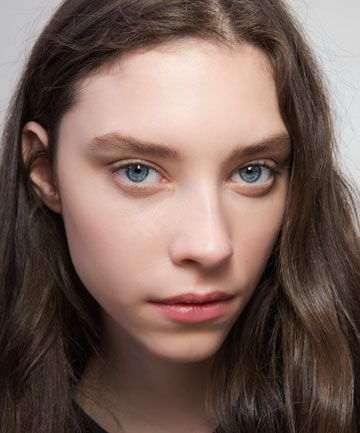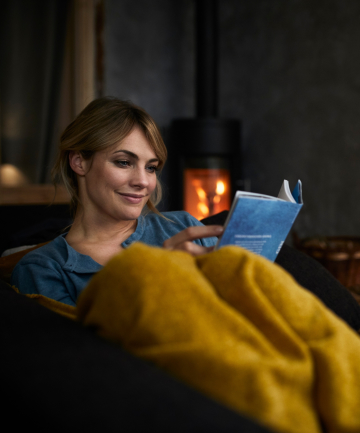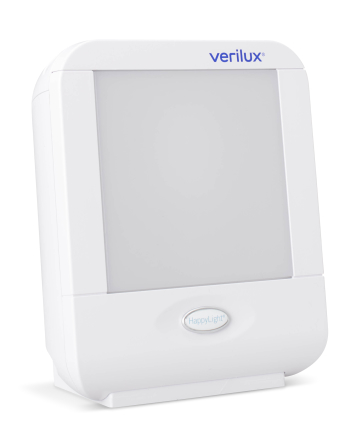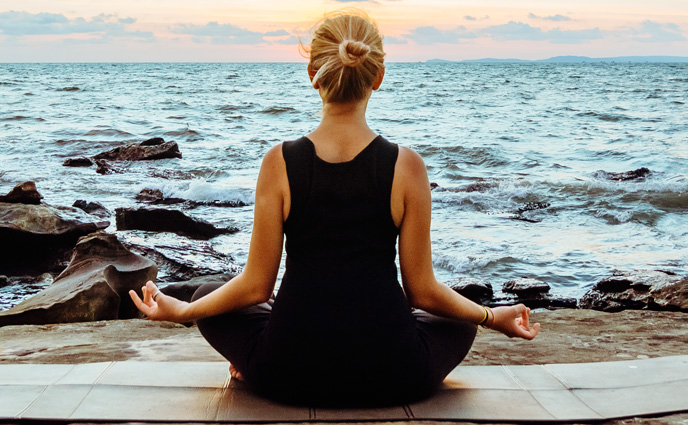While many of us might notice a little dip in our mood during the winter months, some of us experience a mood shift that's a bit more drastic. It's called Seasonal Affective Disorder (SAD), commonly referred to as the winter blues, and is classified as a type of major depressive disorder where episodes of depression occur around the same time each year — usually in the winter months. "SAD is more common in women than men and the prevalence rates range from 9.7 percent in New Hampshire to 1.4 percent in Florida," says A.J. Marsden, Psy.D., an assistant professor of human services and psychology at Beacon College in Leesburg, Florida. "These rates support one theory as to what causes SAD, and that is the lack of sunshine and, more specifically, the lack of vitamin D that might bring about mild to moderate episodes of depression."
The good news is, SAD is not only treatable — and often without the use of over-the-counter medications or a prescription from your doc — but preventable, too. Here, experts share some easy everyday ways you can ward of seasonal mood changes.
Image via Imaxtree
The good news is, SAD is not only treatable — and often without the use of over-the-counter medications or a prescription from your doc — but preventable, too. Here, experts share some easy everyday ways you can ward of seasonal mood changes.
Image via Imaxtree
Yes, the winter months can be frigid, but they can also bring a lot of fun, too. In fact, there are tons of winter-only activities to participate in. "Pick up a winter sport or activity that you can only enjoy in the cold, like sledding or making a snowman with your kids," suggests Lindsay A. Henderson, PsyD., a psychologist who treats patients via telehealth app, LiveHealth Online. "Going into the winter season with a negative attitude will make it impossible to feel good through springtime, so be proactive and pack your schedule with enjoyable activities, whether indoors or out."
Image via Westend61/Getty
Image via Westend61/Getty
"It is OK to feel overwhelmed and irritated with life at times, but it is not helpful to close the door to that which is going well," says Mayra Mendez, Ph.D., LMFT, a licensed psychotherapist and program coordinator for intellectual and developmental disabilities and mental health services at Providence Saint John's Child and Family Development Center in Santa Monica, California. When feeling down, she recommends doing a task that takes you away from the overwhelming and towards a happier place, even if only for a few minutes. "This might include doing a craft, reading a book on your wish list, going to see a movie, cooking your favorite meal or treat, looking up a new recipe, or listening to an inspirational message," she says. "Doing something that is of interest and maybe even a little special offers opportunity to feel in control and take care of self."
Image via Westend61/Getty
Image via Westend61/Getty
If you have a pet, carve out a few hours where you can go for a walk or spend some time cuddled up on the couch together. In fact, research has shown that people are not only happier in the presence of animals, but they're healthier too. One survey of pet owners found that 74 percent reported mental health improvements just by owning their pet. Don't have a pet? No worries. There are endless ways of communicating with animals, be it in nature or by visiting a local shelter. "This is a simple activity that does not take much time, but has great impact on relaxing the mind and shifting negative thoughts," Mendez says.
Image via olaser/Getty
Image via olaser/Getty
A treatment specific to SAD is phototherapy, or light therapy, which involves exposure to a special light that mimics natural light and triggers chemicals in your brain to help regulate your mood, Henderson says. While these devices can be particularly helpful for those with winter SAD, she notes the importance of working with a doctor to ensure that you're purchasing the correct type of light, that you're utilizing it safely and effectively and that you're experiencing the type of depression that will actually respond positively to this type of intervention. "Studies suggest that light therapy is most effective when administered early in the day, and can even disrupt sleep if you are exposed to it too late in the day," she adds.
Try: Verilux Happylight Compact, $135
Try: Verilux Happylight Compact, $135









